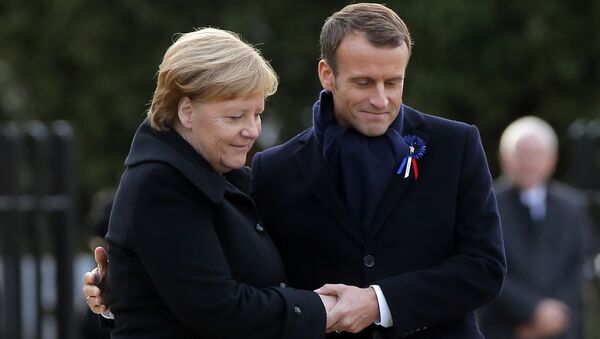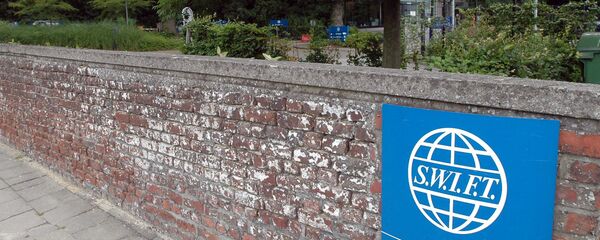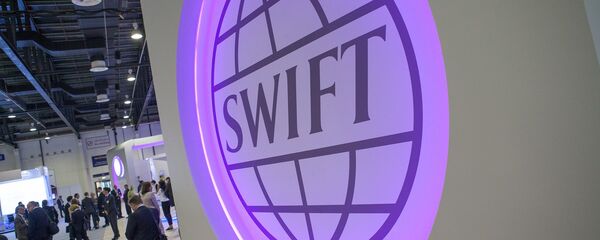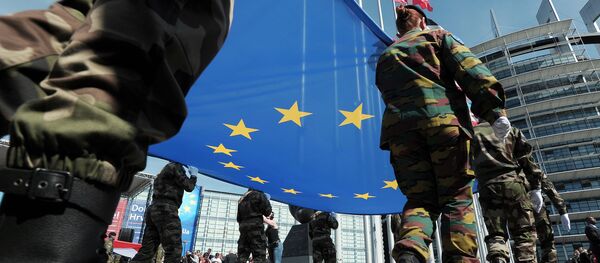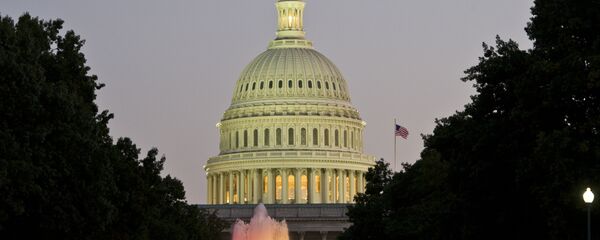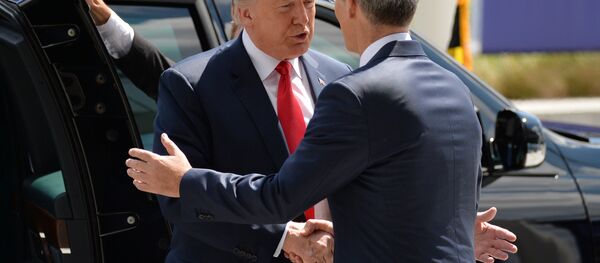Experts told Sputnik the US has driven Europe away with its unpredictability.
French President Emmanuel Macron revived the notion of a European Army last week when he said on Europe One radio, "We have to protect ourselves with respect to China, Russia and even the United States of America."
"When I see [US] President [Donald] Trump announcing that he's quitting a major disarmament treaty which was formed after the 1980s euro-missile crisis that hit Europe, who is the main victim? Europe and its security," the French president said.
Macron was echoed by German Chancellor Angela Merkel on November 13 in a speech before the Members of the European Parliament in Strasbourg, France, saying, "We have to look at the vision of one day creating a real true European army… Europe must take its fate in its own hands."
"Only a united Europe can be strong enough to be heard on the world stage," Merkel said, urging European Union countries "to come to common solutions in areas where treaties would allow it."
As Trump headed to Paris on Friday for the November 11 commemoration of the armistice that ended the four-year-long World War I in 1918, he fired off at Macron's idea, calling it "insulting."
During that war, France and Germany were on opposite sides, with the US eventually joining the war in 1917 on the side of France and Britain, pushing the German army out of northern France, where it had been fighting a ferocious war against the Western allies since 1914 that cost millions of lives.
After returning to the US, Trump turned up the heat. "Emmanuel Macron suggests building its own army to protect Europe against the US, China and Russia," Trump tweeted on Monday. "But it was Germany in World Wars One & Two — How did that work out for France? They were starting to learn German in Paris before the US came along. Pay for NATO or not!"
US State Department spokesperson Heather Nauert further decried the proposal on Tuesday, saying that the US "would not want the weakening of NATO," Sputnik reported.
The notion of a European Army has been floated multiple times in the last few years.
"In the very long run, we will need a European army," European Commission President Jean-Claude Juncker tweeted on May 20, 2014. "Because we have to be credible when it comes to foreign policy." Juncker repeated those calls last year, predicting in September 2017 that "by 2025, [the EU] needs a functioning European defense union."
This past June, Merkel hailed a proposal by Macron to form a European military "intervention force," telling the Frankfurter Allgemeine Sonntagszeitung that "such an intervention force with a common military-strategic culture must fit into the structure of defence cooperation."
That same month, nine EU countries — France, Germany, Britain, Belgium, Denmark, the Netherlands, Estonia, Spain and Portugal — joined the European Intervention Initiative, a European military force to react to potential crises without help from NATO or Washington, Sputnik reported.
Radio Sputnik's Loud and Clear spoke about the idea of a European Army with Peter Kuznick, a professor of history and director of the Nuclear Studies Institute at American University and the co-author with Oliver Stone of the book and TV show "The Untold History of the United States," and Alexander Mercouris, the editor-in-chief of The Duran.
Mercouris said that while the notion of a European Army goes back to the 1950s, today it may be at least "partially" possible. "I can't see France and Germany, for example, completely merging their armies so that you have a Franco-German Army, but I can imagine a sort of military arrangement being made by the French and the Germans independently of NATO and outside the NATO structures," he told Sputnik, which would be independent of the United States.
However, Mercouris predicted "huge opposition" to the idea by not only the Americans, but also the British.
Kuznick noted the irony that, at the commemoration of the end of World War I, the subject of forming new armies should arise. "I would like to hear them more talking about peace, rather than building new armies."
The professor told hosts Brian Becker and John Kiriakou that European mistrust of "Donald Trump's America" was driving this, noting US hostility to European initiatives from the Paris Climate Deal to the Iran Nuclear Deal and the Intermediate-Range Nuclear Forces (INF) Treaty, the lattermost of which was what prompted Macron to float the notion of a European Army once more.
Mercouris concurred, noting that alternative military structures in Europe weren't the answer to increasing tensions with both the US and Russia, suggesting instead that they should make efforts to build a greater community of peace and avoid war.
"The attitude toward confrontation is becoming hardwired," he said.
Kuznick didn't think other Europeans would take Macron's and Merkel's comments seriously, though, even if Macron's calls for European unity were on the right track in his estimation.
Mercouris suggested that, with Merkel announcing late last month that she would not seek re-election in 2021, Macron was trying to move and take her position as the lead statesman of Europe. "He is appealing to the sort of political constituency that have supported Merkel previously. He's basically saying, ‘We're going to continue this policy of a strong line towards Russia, we're going to build up our military forces, we don't like Donald Trump'… but he has not seen beyond that, and I think that over time, political opinion in Europe is going to move against this whole position that Macron is taking. I don't get the sense at all in Europe… that people here really want to see a militarized Europe standing off on permanent guard against Russia."
"I think if we are talking about a replacement for NATO, I think nobody can really imagine a situation where you could have a NATO or a convincing military structure in Europe, a militarily convincing military structure in Europe, without the United States," Mercouris said.
Kuznick noted the similarities between the world in 1913 and today, when people said it was impossible for a world war to break out because "civilization had evolved where another major power conflict was unthinkable." Today, people similarly dismiss the possibility of a Third World War, despite the US having announced at the start of the year its intention to pursue great power competition with Russia and China.
"There are dangerous reasons" for this rearmament among all major powers, including developing a new generation of nuclear weapons. "The world has become a very frightening place, and we don't learn the lessons" of history, Kuznick said. He noted that Macron characterized World War I as one fought for "universal values," when it was actually fought to redistribute the colonies of European empires. It's important to learn those lessons, Kuznick, said, because the world is "more dangerous than any time, perhaps, than 1962," when the Cuban Missile Crisis threatened nuclear war between the USSR and US.
Mercouris said that in the lead-up to World War I was a "series of crises, badly managed," noting that both now and in July 1914, there was a great lack of statesmanship and statesmen who proved unable or unwilling to preserve peace.
